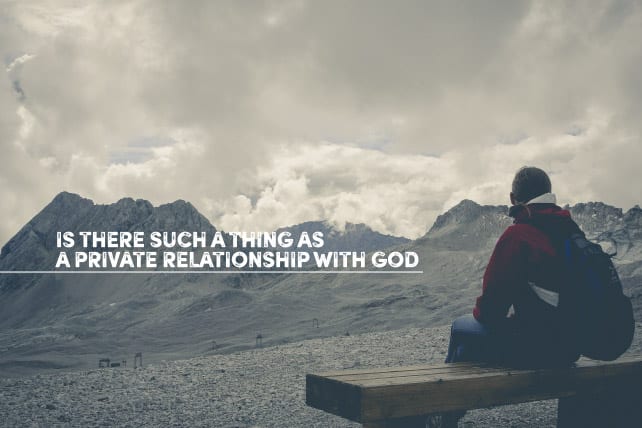Yesterday felt like a normal day: my husband went off to accomplish a
full day's work, the kids and I ran errands, and I squeezed in a bit of
writing before cooking dinner. After the past month, I've a newfound
gratefulness for these mundane tasks and everyday occasions. A normal
day is very much a good day.
My senses were heightened by
my husband's accident,
likely because his were dulled by the severity of his concussion. With
everything in our lives under my care, I've been on red alert for weeks,
unable to sleep well, constantly protective of my husband, and trying
to give my children a summer at least somewhat unaffected by our
circumstances.
I slept for two hours last Friday afternoon, went
to sleep again at 9 that evening, and then slept for two hours on
Saturday afternoon. That's telling, not only of how exhausting and
stressful this tremulous situation has been, but that I was finally able
to sleep so soundly. Something has shifted. My husband is slowly coming
back to himself;
we are returning to normal. That's not
to say that everything will return to normal. At least I hope not. Funny
how difficult trials release to the surface what's been held down at
the depths of the heart. We've been no exception in our own trial, as
we've experienced the urgency of our idols--idols of busyness,
self-sufficiency, self-importance, and control, idols begging for
attention we've not been able to give in our weakness and desperation.
What a blessing to see them so clearly, to have a moment to stop the
treadmill of life and look around a bit, to realize that there are in
fact ways we're living that are making us crazy and dishonoring to God
and one another. I'm taking furious notes as the Lord begins to draw
conclusions in my heart, and I'm praying for God to do the work He wants
to do in us.
I also have taken copious notes on how to minister
to others who are in crisis, because we've been so generously ministered
to by God's people. I could tell you stories--many of them--of how God
prepared to care for us
in advance, and how the simple words and
actions of others brought me to tears. Online readers, thank you for
your messages and prayers. In-real-life friends, thank you for every
meal, card, text, hug, prayer, and email. You've helped us through. I've
taken notes from you, so I can remember what to do when someone I love
is in crisis. Actually, I took notes for all of us. Here's what I've
learned about coming alongside sufferers from those who have done it
well for me:
Take action, any action.
Don't wait for someone else to take the lead. Don't wait for permission
from your hurting friend or wait for her to ask for help. People in
pain don't actually know what they need, but they are relieved when you
offer specific help. Text them something like this: "I'd like to bring
you a meal. Is tonight or tomorrow better?" Offer to take a caregiver's
children so they can rest. Send gift cards for food delivery. Write a
card and drop it in the mail. It doesn't really matter what it is, as
long as you do something.
Check back in again. In our
situation, I didn't feel that we needed anything just after the
accident, but as time stretched on, life became much more unmanageable
for me. After putting people off at the start, I didn't know how to ask
for help when I actually needed it, so it was extremely helpful when
friends checked back in with me about needs or simply brought over food.
Acknowledge the emotions and stress of the situation. Meeting
physical needs is so helpful, but hurting people equally appreciate
when their friends acknowledge the difficulties inherent in unexpected
circumstances. One of the best things someone said to me was, "There
isn't a right way of doing this." She was referring to my caregiver role
and the communication role I'd taken for my husband, and her words gave
me permission to not be OK. In whatever way you do it--even if it's
just a simple hug and an "I'm praying for you," it's vital to
acknowledge what is happening for the ones who are suffering.
Send passages of Scripture. Stress,
uncertainty, and emotions can certainly cloud our ability to think
clearly. In the weeks after Kyle's accident, I found it difficult to
focus when I'd open my Bible. I needed to be able to think about our
circumstances through the lens of God's love for me and for my husband,
but I sometimes felt too exhausted to even think at all. When friends or
church members would send me passages of Scripture, it was like a drink
of water in a parched land and an instant perspective shifter. They
pointed me toward my Rock and one true sense of hope.
I've been
told that it will take up to two months for Kyle to be at 100%. We're
definitely getting there! Yesterday, he worked out for the first time
since the accident, his sense of humor (one of my favorite things about
him) has returned, and he'll be back in the pulpit this Sunday. Good
things, all.
Many other good things are also on the horizon: I
turn 40 on July 24 (another good time to stop and evaluate life,
right?), and I will soon be sharing all the details about my new book,
Messy Beautiful Friendship, which is already up for
pre-order on Amazon even though it releases next April.
How about a few other good things? 1)
Remember the friend I asked you to pray for? Her brother suffered a
much more severe brain injury than what Kyle did in the very same week.
The doctors weren't sure if he would live, but I'm happy to report that
he is doing well and is in rehab in Atlanta. Praise God!
2) Some
of you are drowning in "not good enough" this summer. You're obsessed
with comparing yourself to other believers and with trying to figure out
what you're "supposed" to be doing as a Christian. There is no joy or
freedom in that place, and I can say that from years of personal
experience. My good news for you is that I wrote all about these very
things in my book,
From Good to Grace, and
the ebook version is only $1.99 through July 14 on
Amazon and
Barnes & Noble! Grab it, girl!
3)
And, finally, and perhaps most importantly, I have been reading and
listening to the beautiful voices speaking out about the turmoil in our
country. I will be writing more about racial division and my hope for
racial reconciliation through the gospel in the coming weeks, but I
wanted to share a few posts that I've found helpful as I've been
prayerfully considering this issue. I'm thankful for those who are
speaking up:
How Talking to Your Kids About Race Helps Fulfill the Great Commission by Judy Wu Dominick
Trillia Newbell is doing a wonderful series on racial harmony.Spanning the Racial Divide with Authentic Love by Sarah Beals
Lastly, I wrote a little something on Facebook about
what I've learned from my black friends.Again,
thank you for your prayers and concern for me and for my family. Let me
know what good things God is doing in your life right now. I'd love to
celebrate with you!
Read in browser »







